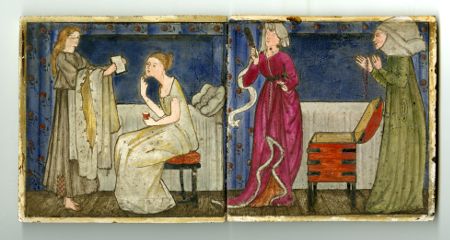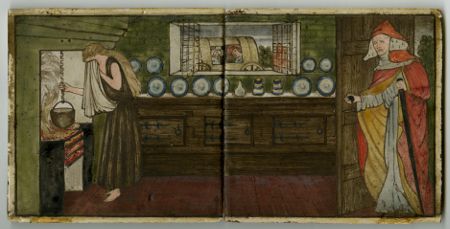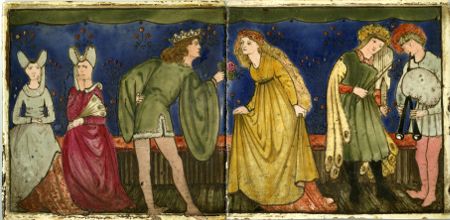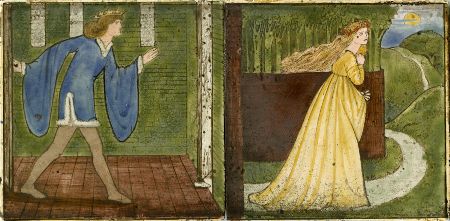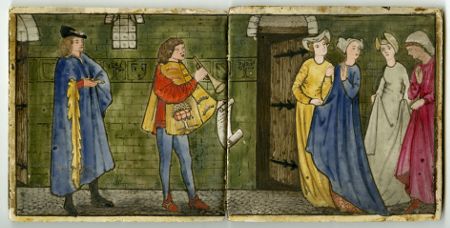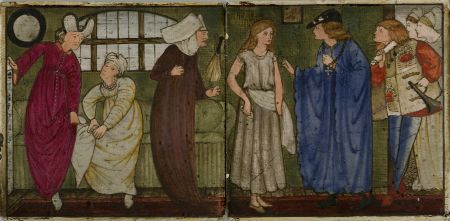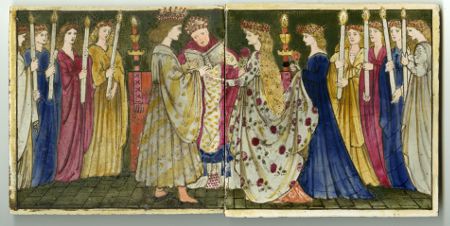
The Two Red Roses Foundation acquires a rare set of William Morris Cinderella tiles
June 6, 2010
A rare set of ceramic tiles made by the prestigious English firm Morris & Company in the early 1860's has recently been acquired in London by the Two Red Roses Foundation of Palm Harbor, Florida. Seven pairs of hand-painted tiles depict the story of Cinderella or the "Cinder-Wench. The maid with the shoe of glass." Only four sets of these tiles are known to have survived.
In 1862 the British artist Edward Burne-Jones began to design fairy tale tiles in his illustrational, narrative style for the newly founded Morris, Marshall, Faulkner & Company of London. The Cinderella story tiles were designed first, followed by Beauty and the Beast, and Sleeping Beauty. All three tales were commissioned by British watercolorist Myles Birket Foster for his new home, called The Hill, in the Surrey countryside, where they were installed as overmantels.
The Cinderella set owned by the Two Red Roses Foundation includes a pair of tiles depicting the romantic culmination of the story, the wedding scene originally designed for the Sleeping Beauty narrative. According to Morris tile expert Richard Myers, all of the tiles, including the bonus pair, appear to have been painted by the same decorator in the late 1860's or early 1870's.
The staff of Morris & Company had little expertise in ceramics and could not produce tiles from scratch in their facilities. White, tin-glazed earthenware tiles called "blanks" were imported from Holland and then painted by in-house decorators with low-fire overglaze enamels. An intermediate clear glaze was evidently applied to the blank and fired to maximize the bond with the surface decoration. Multiple colors required several firings at decreasing temperatures in a kiln Morris' staff also used for stained glass. Overglaze is a notoriously difficult medium to handle and often results in a fragile surface, prone to abrasion and flaking, consequently few examples of these early fairy tale tiles have survived.
Two other examples of the Cinderella story tiles are at the Walker Art Gallery, Liverpool and the Huntington Library, San Marino, California. A fourth set, which also included the extra wedding scene, was sold in 1999 by Christies London.
Click or tap the images below for a larger view.
